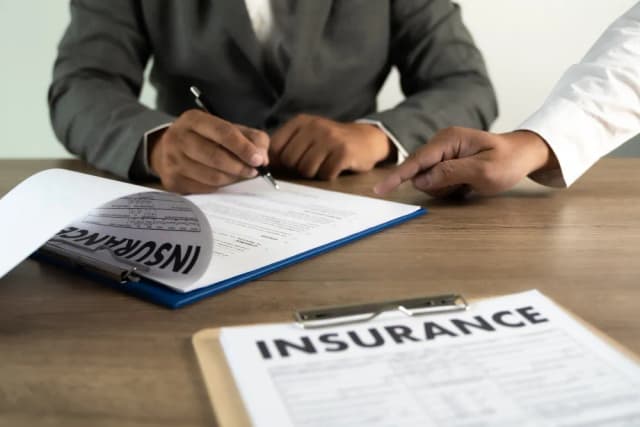Pharmacy Mistakes You Should Watch Out For and How to Prevent Them

Pharmacies are essential in helping you manage your health by providing the medications you need to treat various conditions. However, despite their commitment to quality care, pharmacy mistakes can occasionally happen. Understanding these potential errors and knowing how to prevent them can help ensure that you receive the right medications in the right dosages.
At Farmington Drugs, we’re dedicated to offering the best possible care for all our patients. In this blog post, we’ll cover the most common pharmacy mistakes, how they can affect your health, and tips on how to prevent them.
1. Incorrect Medication Dispensed
One of the most serious pharmacy mistakes is receiving the wrong medication. This can happen when a similar-sounding medication name is mistakenly dispensed, or when a similar-looking bottle is picked up. Taking the wrong medication can lead to ineffective treatment or even harmful side effects.
How to Prevent It:
-
Check the label: Always double-check the medication label when you pick up your prescription. Make sure the medication name, dosage, and instructions match your prescription.
-
Ask about any changes: If the medication looks different than what you expected, ask the pharmacist to verify it before you leave.
-
Read the instructions: Ensure that the instructions on the bottle match what your doctor prescribed.
2. Wrong Dosage or Instructions
Another common mistake is receiving the incorrect dosage or instructions. This can happen due to a miscommunication between the doctor and pharmacy, a data entry error, or simply a mix-up in the instructions. Taking the wrong dosage can have serious consequences for your health.
How to Prevent It:
-
Confirm the dosage: Before leaving the pharmacy, carefully check the dosage instructions on the medication bottle. If the prescribed dosage is unclear, ask the pharmacist for clarification.
-
Understand the directions: If the medication is complicated (for example, taking multiple doses per day), ask the pharmacist to explain the best way to follow the instructions.
-
Ask for help if needed: If you’re unsure how to take your medication, don’t hesitate to ask the pharmacist to explain how it works.
3. Failure to Identify Drug Interactions
Drug interactions can occur when two or more medications you’re taking interact with each other in a way that reduces their effectiveness or causes harmful side effects. While pharmacies use automated systems to check for these interactions, they can still be overlooked—especially if you’re taking medications from different sources or if there are changes in your prescription.
How to Prevent It:
-
Tell your pharmacist about all your medications: Make sure the pharmacy knows all the medications you’re taking, including over-the-counter (OTC) drugs, supplements, and vitamins.
-
Ask about drug interactions: If you’re prescribed a new medication, ask the pharmacist whether it may interact with your existing medications.
-
Use the same pharmacy: Using one pharmacy for all your prescriptions makes it easier for pharmacists to review your medication history and reduce the chance of dangerous interactions.
4. Expired or Damaged Medications
Receiving expired or damaged medications is another issue that can arise, though it is relatively rare. Medications that are past their expiration date may not work as effectively, or worse, they may cause adverse reactions. Damaged packaging or improper storage can also affect the medication’s safety.
How to Prevent It:
-
Check expiration dates: Before accepting your medication, check the expiration date to ensure it’s still valid.
-
Examine the packaging: If the medication packaging looks damaged or compromised, ask the pharmacist for a replacement.
-
Proper storage: Make sure you store your medications according to the pharmacist’s instructions (such as in a cool, dry place) to prevent degradation.
5. Missed or Incorrect Prescription Renewals
Sometimes, a prescription renewal may be missed or processed incorrectly. If you run out of a medication and haven’t received your refill, it could be due to a delay in your doctor’s office or a miscommunication between the pharmacy and your healthcare provider.
How to Prevent It:
-
Track your refills: Keep track of when your prescriptions are running low and request refills in advance. Setting a reminder can help you stay on top of your medications.
-
Communicate with your doctor: If you’re running low on medication and your prescription hasn’t been renewed, contact your doctor’s office for a refill authorization.
-
Pharmacy assistance: At Farmington Drugs, we can help you manage your medication refills and assist in ensuring that you don’t run out of essential medications.
6. Incorrect Medication for Your Condition
It’s possible that you could be prescribed the wrong medication for your condition. This may happen if your doctor and pharmacist are unaware of changes in your health, such as new diagnoses or medications you’ve started taking.
How to Prevent It:
-
Inform your pharmacy about your health changes: Always let your pharmacy know about any changes in your health condition or new medications you’ve been prescribed.
-
Ask your doctor about your treatment plan: If you're unsure about why a certain medication was prescribed, ask your doctor to explain how it fits into your overall treatment plan.
-
Get a second opinion: If you're ever unsure about the medication you’ve been prescribed, it’s okay to seek a second opinion from another healthcare provider.
7. Overlooking Allergies or Medical Conditions
A pharmacy mistake can occur when a medication that you’re allergic to, or that is contraindicated due to an existing medical condition, is dispensed. This could be potentially dangerous, especially for individuals with severe allergies or chronic conditions like heart disease or kidney issues.
How to Prevent It:
-
Update your medical history: Always keep your pharmacy updated on any changes to your medical conditions or allergies.
-
Carry a medication list: Keep a list of all your medications, including over-the-counter drugs, and share it with your pharmacist each time you get a new prescription.
-
Ask about potential allergens: If you have known allergies, ask the pharmacist to double-check the ingredients in your medication before it’s dispensed.
How Farmington Drugs Helps Prevent Medication Errors
At Farmington Drugs, we take your health seriously. We have systems in place to minimize medication errors, and our pharmacists are always ready to assist with any questions you have about your prescriptions. Our commitment to you includes:
-
Offering medication reviews to ensure you're taking the right meds in the correct doses.
-
Providing refill reminders to help prevent running out of essential medications.
-
Offering medication counseling to explain your prescriptions clearly and address any concerns.
If you ever have any doubts or concerns about your medications, don’t hesitate to reach out to us. We’re here to ensure that your prescriptions are accurate and safe.
Final Thoughts
While medication errors at pharmacies are rare, they can happen. By staying proactive and vigilant, you can reduce the risk of errors and ensure that you are receiving the right treatment. Always double-check your prescriptions, communicate with your pharmacy and healthcare providers, and don’t hesitate to ask questions.
At Farmington Drugs, we are here to help you manage your medications safely and effectively. If you ever encounter an issue or simply have questions, we’re just a phone call or visit away.





